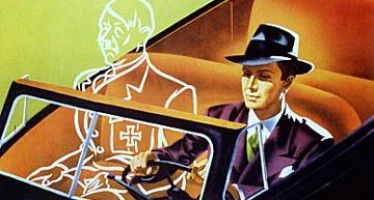Adult Beverage Hypocracy
Katy Grimes: While one group is pushing to expand and increase wine and liquor tastings in public places, people are getting pulled over in DUI checkpoints on a Friday evening.
Yesterday, the Assembly voted to pass a bill extending tasting opportunities to supermarkets and big box stores. And last night Mothers Against Drunk Driving volunteers camped out at drunk driver checkpoints with police downtown near popular restaurants, and in the south area of Sacramento.
The message is confusing and contradictory. And hypocritical. Critics of the technique say that Mothers Against Drunk Driving statistics are grossly inflated.
The drunk driving zealots, driven by furthering a profitable enterprise according to critics, together with cash-strapped police departments, are killing business. Or at least they will soon. When drunk driving checkpoints move into urban neighborhoods where people eat, consume adult beverages and socialize, restaurant patrons will soon be deciding to stay home out of fear of being arrested at the end of a night out.
This process sounds very totalitarian. Why is every driver stopped just because they happen to be on a certain road — even with advance notice by the police departments? Why are the police not going after the drivers who are erratic, or violating traffic laws? Instead, every person is pulled over and accused of a crime without evidence of any wrongdoing. Where is the ACLU? Where is the real probable cause?
Ironically, the police are not conducting checkpoints to verify citizenship or drivers’ identification. In fact, police are not allowed to ask drivers if they are legal citizens, even when there is probably cause to pull a drive over.
But they can and do stop law abiding citizens simply for driving down a street or highway at the wrong time — sobriety checkpoint time.
Sobriety checkpoints target responsible, moderate, drinkers and are ineffective say critics. They sometimes don’t even catch drunk drivers, while costing taxpayers thousands of dollars to conduct just one sobriety checkpoint.
In a story titled “American Beverage Institute Says Mothers Against Drunk Driving Proposals are Ineffective and Target the Wrong People,” American Beverage Institute Managing Director Sarah Longwell said, “By calling for roadblocks and mandating breathalyzers for first time offenders, regardless of their blood alcohol level, MADD is ignoring the root cause of today’s drunk driving problem—hard core alcohol abusers.”
“Because they are highly visible by design and publicized in advance, roadblocks are all too easily avoided by the chronic alcohol abusers who comprise the core of today’s drunk driving problem,” Longwell continued. “That leaves adults who enjoyed a glass of wine with dinner, a beer at a ball game, or a champagne toast at a wedding to be harassed at checkpoints.”
While doing some research on sobriety checkpoints, I stumbled on a open thread exchange by lawyers, where very clearly, an attorney was stopped at a checkpoint. He refused to submit to the sobriety test, refused to say whether he had been drinking (he had not), and refused to consent to a search of his vehicle. (read the whole thread, and see all of the interesting legal responses).
And I found this comment very interesting: “In CA avoiding a DUI checkpoint is perfectly lawful … as long as you do so in a legal fashion (like legally turning a block ahead).” Although, “I have noticed usually motorcycle cops stationed before the checkpoint pulling people over that turn prior to the checkpoint.”
The drunk driving problem is not the moderate, social drinker, according to Lawrence Taylor, the author of the book Drunk Driving Defense. “Drunk driving has become a cash cow for local governments starving for revenue, said Taylor on his website, and references DUI: Government’s Cash Cow, How to Make a Million in the DUI Business and What if the Cash Cow Goes Dry?. This has lead to such things as putting pressure on cops with DUI arrest quotas. See Do Police Have Quotas?, “Yes, We Have No Quotas”and “Inside Edition” Documents DUI Quotas Across the US. The hunger of municipalities for money might also influence some judges in their rulings…” said Taylor.
Taylor wrote about sobriety checkpoints, “In the 6-3 United States Supreme Court case holding that DUI checkpoints were permissible, Justice Rehnquist admitted that the stops constituted “seizures” within the meaning of the Fourth Amendment. However, he said, this was justified because “No one can seriously dispute the magnitude of the drunken driving problem or the States’ interest in eradicating it.”
Would the Court would have ruled as it did had the justices known what these supposed “sobriety checkpoints” would eventually become?”
He uses the following story as an example:
Safety Stops Draw Doubts
D.C. Police Gather Nonviolators’ Data
Lisa Davis had done nothing wrong. She was wearing a seat belt, was obeying the speed limit and produced a valid driver’s license when D.C. police pulled her over one recent night at a traffic safety checkpoint in a crime-plagued neighborhood.
Even so, an officer jotted down some basic information before letting her go, including her name, address and the time and location of the stop for a police database used for crime solving.
“I’ve got some serious constitutional issues with that,” Davis said as she sat in her idling Acura at the checkpoint at Kansas Avenue and Shepherd Street NW in the Petworth neighborhood. “I feel like it’s a violation of my rights. It’s a slippery slope to Big Brother.”
The details about Davis and the stop will be fed into the database, which is linked to a computer that includes arrest records and mug shots of criminals….
Civil liberties advocates aren’t the only ones questioning the practice. The policy is sparking concern among some officers who conduct the checkpoint stops, most of which are made in areas where crime, not traffic safety, is the primary concern.
“That’s an invasion of privacy, demanding information from a citizen and putting that in a database,” said Officer Gregory I. Green of D.C. police, who is assigned to represent the police union….
The officers jot down motorists’ information on a file-card-size form called a PD-76, which is recorded into the database. The forms also are used for routine traffic stops, and the information will also be used for a racial profiling study, (D.C. Police Chief Charles) Ramsey said.
D.C. homicide Detective Paul Regan said the collection of such data has been “a great intelligence tool.”
posted AUG. 28, 2010
Related Articles
PUC seems to OK ride-sharing
There’s a good chance they’ll mess it up in the end. But the Public Utilities Commission so far seems to
Another year of CA water restrictions likely
After a sunny February, the hopes that El Nino storms would go a long way toward restoring California’s water supplies
Arnold’s biographer beats up on his old buddy. Good!
Sept. 17 By Chris Reed Arnold Schwarzenegger was such a disappointment as governor that it’s somewhat of a disappointment that




